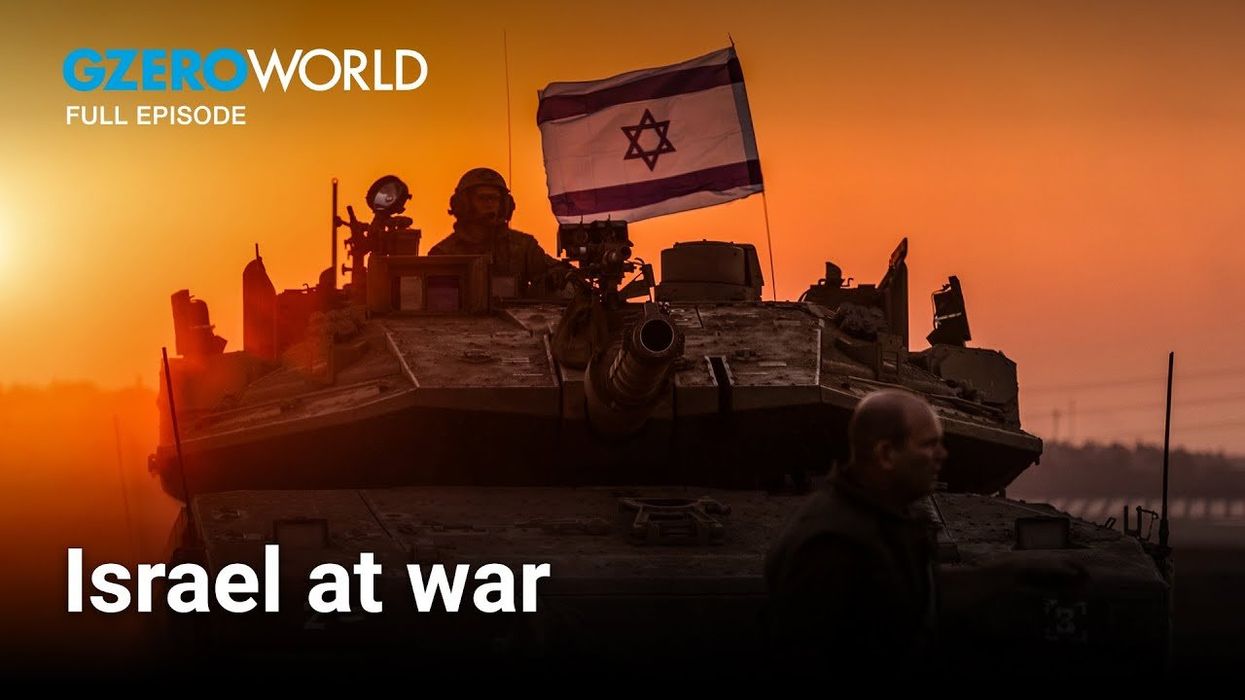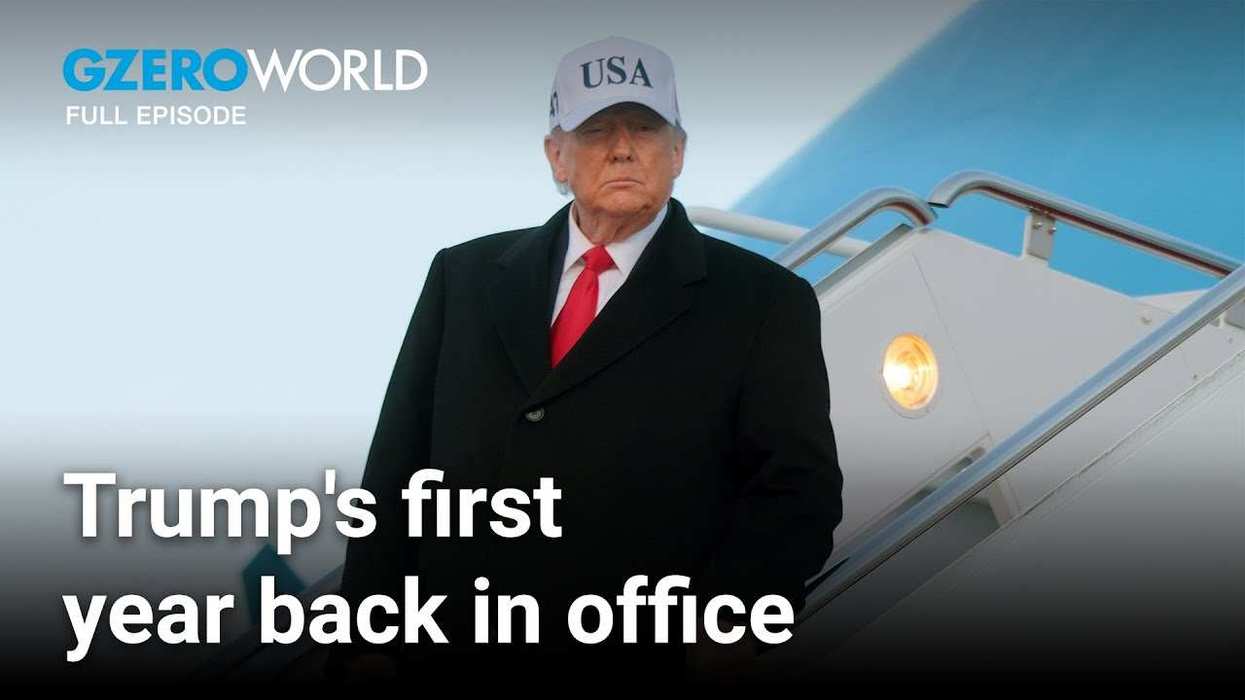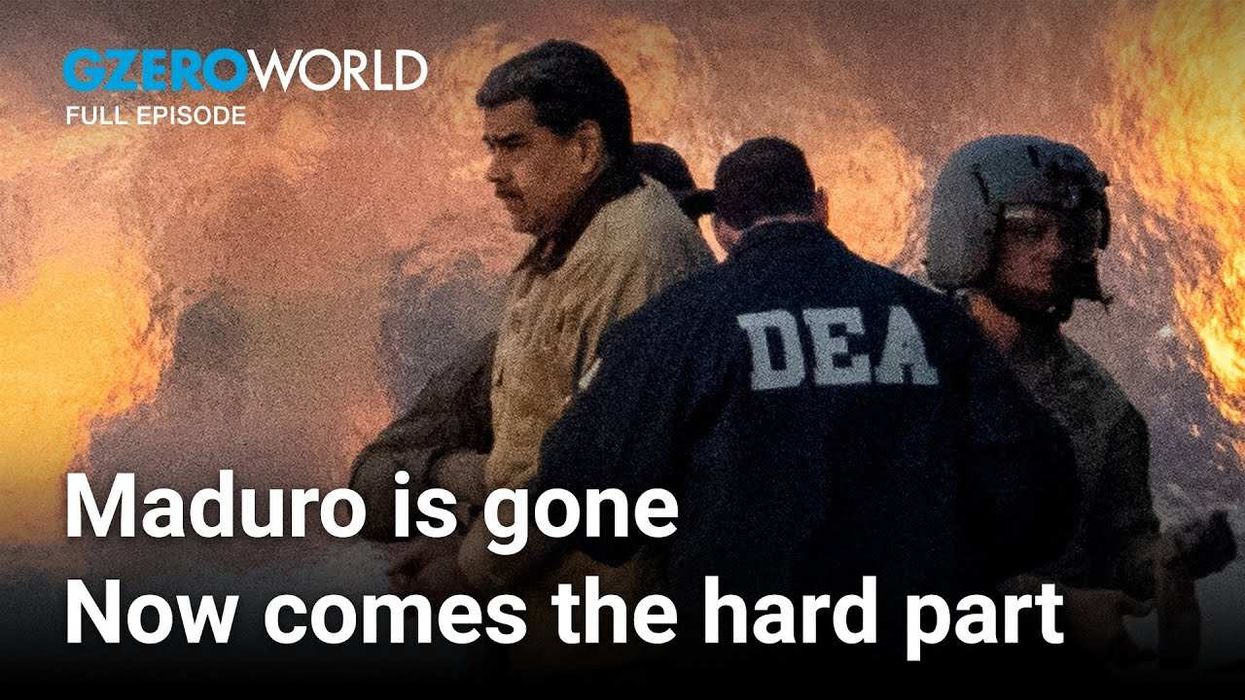VIDEOSGZERO World with Ian BremmerQuick TakePUPPET REGIMEIan ExplainsGZERO ReportsAsk IanGlobal Stage
Site Navigation
Search
Human content,
AI powered search.
Latest Stories
Sign up for GZERO Daily.
Get our latest updates and insights delivered to your inbox.
Global Stage: Live from Munich
WATCH RECORDING
Israel is once again at war, with fighting raging to a level not seen in half a century. As of this taping, Israel’s death toll from October 7th’s Hamas terrorist attack has risen to 1,300, with an estimated 150 people believed to be held hostage in Gaza. And so far, according to health officials there, at least 1,500 Palestinians have been killed in Gaza and thousands more injured. Among the Israeli—as well as international—dead from Saturday’s attack are women, children, and the elderly—many butchered in their homes by rampaging Hamas fighters. And Israeli airstrikes have targeted normally safe structures like schools, hospitals, and mosques, killing women, children, and the elderly as well.
On the show this week, Avi Mayer, editor-in-chief of the Jerusalem Post, joins from Israel to talk about how his life, and those of his fellow Israelis, have been forever changed in the past few days. He also provides a pained but unflinching take on how Israel should respond and what that response might mean for the Palestinians caught in the crosshairs.
Then, Middle East scholar Shibley Telhami joins from the Washington DC area to talk about the broader geopolitical context of this latest conflict. Why did Hamas choose this moment to launch its attack, and how did a burgeoning diplomatic deal between Israel and Saudi Arabia play into that decision? Also, what will happen to the 2.3 million Gazans with nowhere to go?
Watch GZERO World with Ian Bremmer every week at gzeromedia.com/gzeroworld or on US public television. Check local listings.
Keep reading...Show less
More from GZERO World with Ian Bremmer
President Trump against the world
February 16, 2026
How Singapore navigates a fragmented world
February 02, 2026
Can Europe stay united?
January 23, 2026
One year into Trump 2.0: How the world has changed
January 18, 2026
Maduro is gone. What happens now?
January 12, 2026
About the Show
Every week on GZERO World with Ian Bremmer, Ian explains the key global stories of the moment, sits down for an in-depth conversation with the newsmakers and thought leaders shaping our world.
Watch GZERO World on US public television and on GZERO's YouTube channel. GZERO WORLD with Ian Bremmer is a local public television program presented by THIRTEEN PBS.
GZERO Series
GZERO Daily: our free newsletter about global politics
Keep up with what’s going on around the world - and why it matters.
















